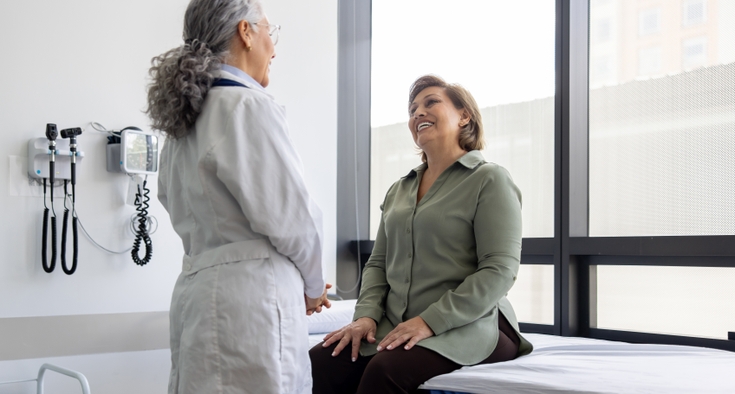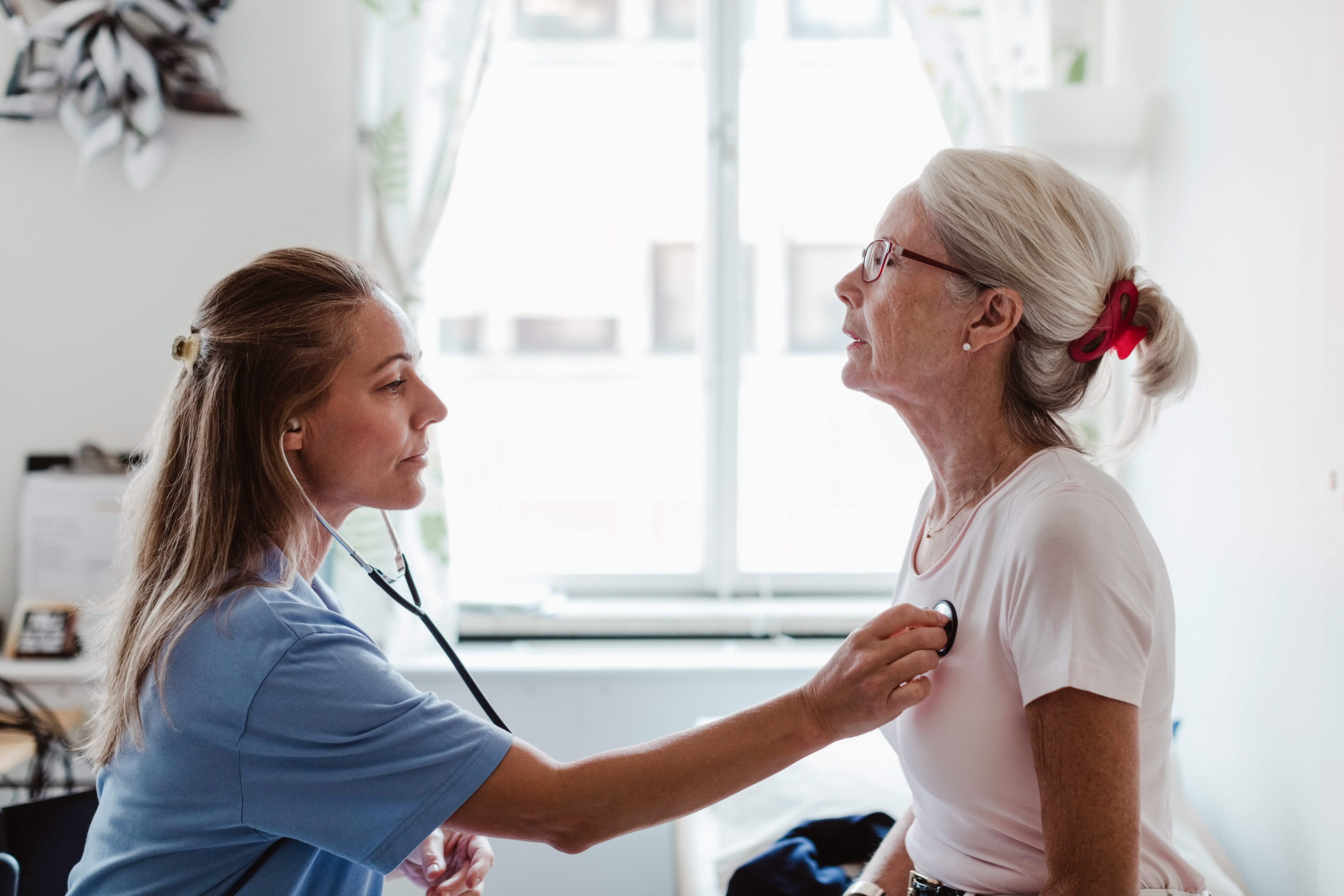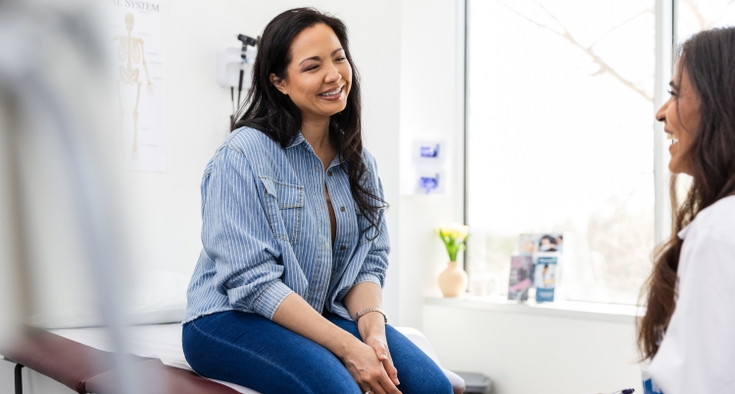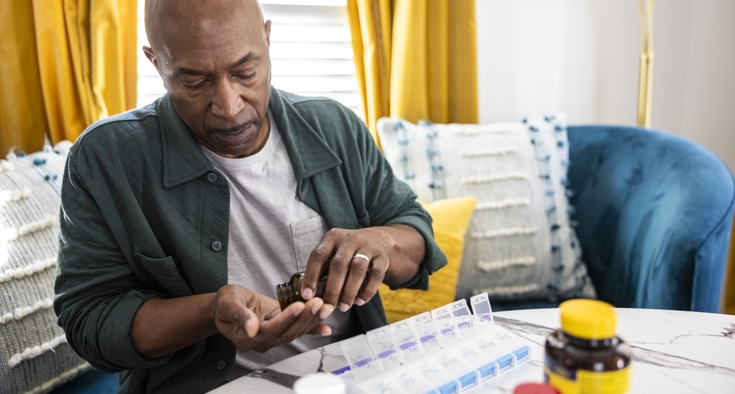Whether you’re 18 or 80, an annual exam with an OB-GYN may be the most important health investment you make this year.
Some women assume that after a certain age they don’t need to see an OB-GYN, while others assume that an annual visit to a primary care physician covers all the bases. But the truth of the matter is that women need to see both. Every year.
Why? Because primary care providers and OB-GYNs bring different areas of expertise to a woman’s health. OB-GYNs are specially trained in the female reproductive system and provide focused screenings and care that may not be fully addressed during a general physical.
Meanwhile, primary care providers play a vital role in managing chronic conditions like high blood pressure and Type 2 diabetes — health issues that affect nearly 60% of Americans and require ongoing attention.
Find the OB-GYN care you deserve in seconds.

"GYNs and primary care physicians can play off each other as part of your health care team," said OB-GYN Dr. Claire Bowles. "Regular check-ins help us track subtle changes and intervene early, which is when we have the most options."
An annual exam with an OB-GYN differs in important ways from the annual physical you receive from your primary care doctor, she said. Your clinic may refer to this as a “well-woman” visit because the phrase is often used in medical and insurance records.
For example, unless your OB-GYN also serves as your primary care provider, they typically won’t order routine blood work or give most immunizations — though they may offer the HPV vaccine.
Still, the annual OB-GYN visit offers a valuable additional touchpoint for overall health — not just reproductive care. “We sometimes identify concerns that fall outside the scope of gynecology,” Bowles said. “It’s another opportunity for women to be seen by a physician who can help guide them toward the right care when needed.”
Together, however, an annual checkup by an OB-GYN and your yearly physical with a primary care provider draw a more detailed picture of your health than either one alone can provide. Bowles encourages women to alternate visits — ideally, six months apart — to these key players on their health-prevention team to ensure they’re receiving consistent, comprehensive preventive care throughout the year.
Bowles shares what women of all ages need to know about annual gynecological exams:
What you’ll be talking about:
An annual OB-GYN visit isn’t just about a Pap test. In fact, many women don’t need a Pap test every year — but they still benefit from checking in with their gynecologist annually.
Your OB-GYN visit is a chance to talk about anything related to your reproductive and hormonal health: periods, contraception, fertility, perimenopause, menopause, vaginal dryness, libido, pelvic pain, fibroids, abnormal bleeding — you name it.
We also screen for gynecologic cancers, check in on your breast health and make sure you’re up to date on age-appropriate screenings like mammograms, bone density tests and even heart disease risk.
Whether you’re 25 and managing birth control or 55 and navigating hot flashes and sleep changes, your OB-GYN can help guide you through it with personalized, evidence-based care.
Pap test:
While not everyone needs a Pap test, also known as a Pap smear, every year, regular screening is still important — and the timing depends on your age, health history and HPV test results. Most women begin screening at age 21 and continue through age 65.
GYN care for older women
Senior women: There’s a common misconception that once you hit 65, you’re done with your gynecologist.
Medicare covers breast and pelvic exams every two years — because many gynecologic conditions begin to surface later in life. Medicare supports your decision to continue Pap testing if you're uncomfortable stopping, particularly if you're in a higher-risk category.
In fact, at least 20% new cervical cancer cases and more than half some gynecologic cancers occur after age 65. These include cancers of the uterus, cervix, ovaries and vulva. This is why continued care after menopause matters, and why a pelvic exam or visual inspection remains an important part of a woman’s preventive health, even when Pap tests are no longer needed.
That’s the reason Novant Health continues to recommend regular OB-GYN visits for women — not only for cancer screening, but to address other common concerns in postmenopausal women, such as pelvic organ prolapse, incontinence, sexual health changes and screening for osteoporosis.
Missed opportunity: Women who skip their annual OB-GYN checkup are missing an important opportunity for screening, counseling and early detection, which works in close tandem with your primary care physical.
Your OB-GYN can also field questions that women may be uneasy asking their primary care doctor, about things like sexual pain, libido changes, vaginal dryness, urinary leakage, body image, perimenopausal symptoms, mood swings, brain fog, hormone therapy, the impact of aging on intimacy and more. OB-GYNs welcome those questions, because in many cases we can help treat them.
GYN care for younger women
Novant Health encourages girls to start seeing a gynecologist in their teens — often between the ages of 13 and 15 — even if there are no specific concerns. These early visits help build trust, answer questions about periods, birth control or body changes and create a safe, supportive space for future care.
Teens can be seen with or without a parent present, and conversations are always handled with compassion and respect for privacy.
Bottom line: Your OB-GYN is a vital part of your healthcare team and is here to support your whole health — not just your reproductive care. So don’t put off that well-woman appointment. It’s a small investment in your long-term health and peace of mind.












